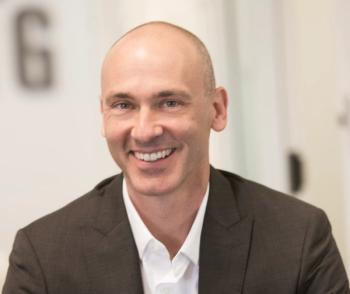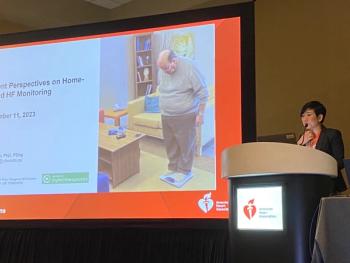
Wireless Communications Firms Pitch Private 5G Networks to Hospitals
The companies says such networks are key to making digital transformations a reality.
Verizon Communications is using a new partnership as an opportunity to explore how private 5G networks can help enable digital transformations in hospital settings.
Last month, Verizon announced a deal with the Cleveland Clinic to deploy a private 5G network at a new Cleveland Clinic hospital in Mentor, Ohio. While the foundation of the deal is the 5G network, the companies said they will also use the opportunity to explore potential digital solutions, including patient check-in kiosks, in-room infotainment, and augmented- or virtual-reality tools for a variety of training and imaging functions.
Matthew Kull, MBA, Cleveland Clinic’s chief information officer, said the partnership is part of the health system’s “long-term vision for a fully digital hospital infrastructure.”
“If we can provide 5G high bandwidth to our facilities, we can become more efficient, ensure better continuity of care as patients transition home, and enhance the overall experience for our caregivers and patients,” he said,
For Verizon, the deal marks a further step into the lucrative healthcare space. In line with the Cleveland Clinic deal, the company said it wants to move beyond simply providing network connectivity, and also help facilitate tasks like care coordination and virtual care, among other services.
That’s the same pitch Verizon’s Business unit made last month at the Health Information and Management Systems Society’s (HIMSS) Global Health Conference.
Kyle Malady, the CEO of Verizon Business, said in the press release that they chose the Cleveland Clinic in part because of its proven competency in digital health.
“The team at Cleveland Clinic is a global leader in healthcare with a clear understanding of the impact technology can have on the overall experience at their facilities,” he said.
Verizon is not alone in trying to sell hospitals on the digital health possibilities associated with private 5G networks.
Boingo Wireless also attended HIMSS to promote its private 5G networks.
“Add to this cutting-edge lab equipment, robotics, and asset-tracking tools and you have a clear need for secure wireless networks that can connect complex digital environments,” he said.
Verizon said a 5G network can also help make healthcare organizations more efficient. They touted the concept of “network-as-a-service” (NaaS), arguing that private 5G networks can allow data to travel more quickly between devices, thereby making it easier for providers to make informed point-of-care decisions.
Verizon said its solutions also include artificial intelligence (AI) offerings, such as chatbots to enhance patients’ “digital front door” experience. They added that 5G networks provide a level of reliability better suited to high-stakes procedures like augmented reality-assisted surgery.
Newsletter
Get the latest industry news, event updates, and more from Managed healthcare Executive.






















